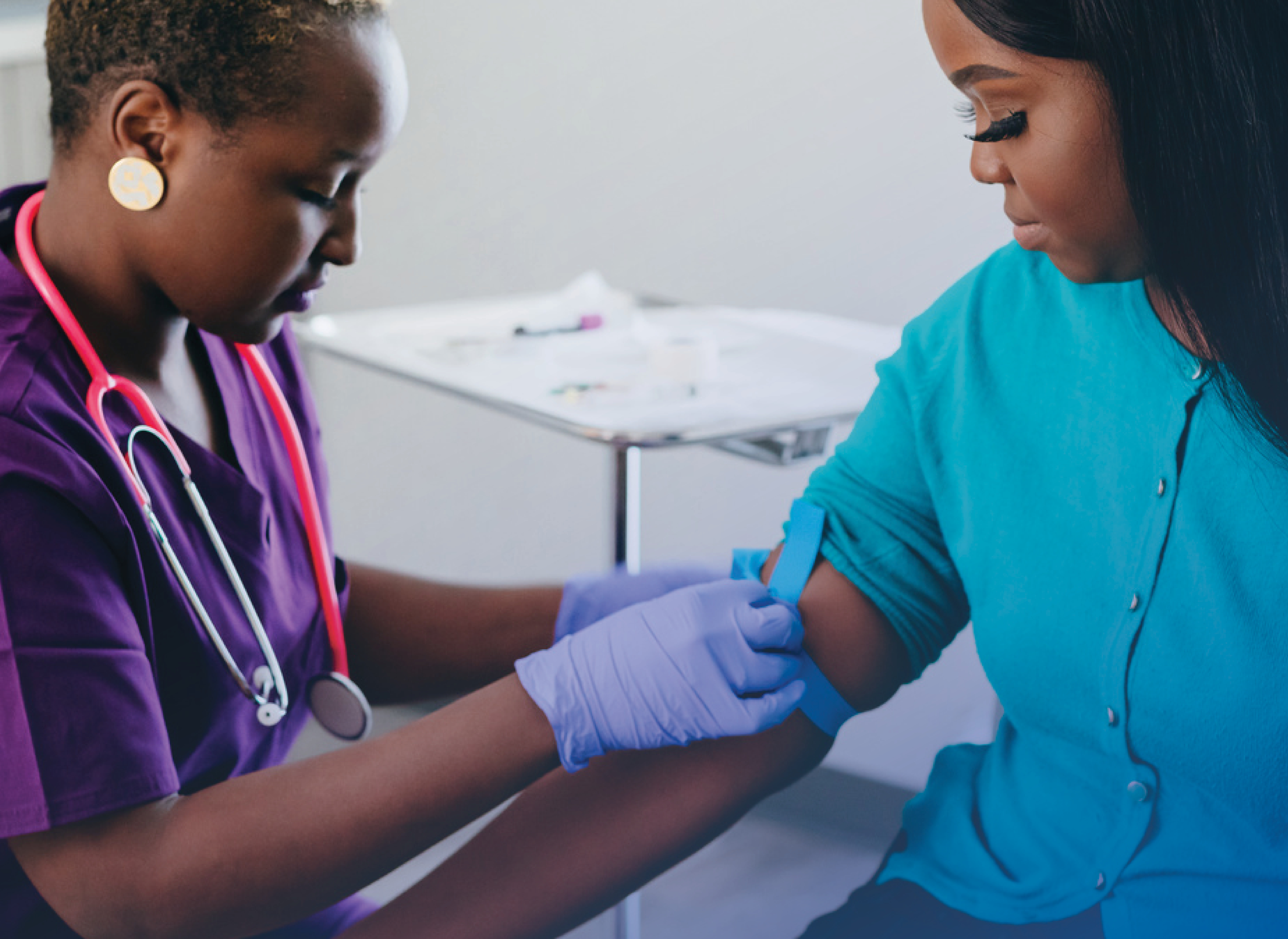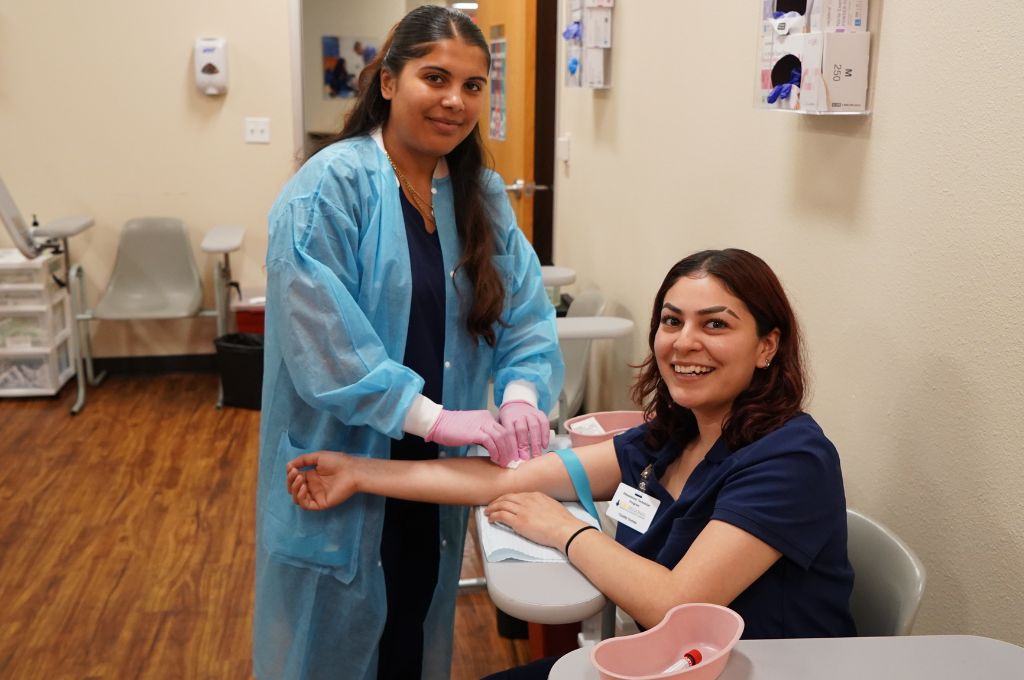Comparing Phlebotomy Courses Near Me That Match Your Schedule
Comparing Phlebotomy Courses Near Me That Match Your Schedule
Blog Article
The Path to Accreditation: Comprehending the Phlebotomy Educating Training Course Trip and Its Relevance
As you consider the path to certification in phlebotomy, it is necessary to comprehend the duty you'll play in medical care. Your training will certainly cover crucial abilities, from blood collection strategies to patient communication. Each part of the program prepares you for the obstacles in advance. Yet exactly what does the trip require, and why is qualification so critical for your future job? Allow's discover these concerns additionally.

The Function of Phlebotomists in Healthcare
Phlebotomists play a crucial function in the healthcare system, working as the crucial link in between clients and essential analysis testing. You'll execute blood draws, ensuring samples are collected precisely and securely. Your know-how helps in detecting clinical problems, keeping track of wellness, and directing therapy decisions.
In your everyday communications, you'll need to develop trust fund with clients, making them really feel comfortable during what could be a stressful experience. You are accountable for labeling and dealing with examples carefully to stop contamination or mistakes, which could impact examination outcomes.
Beyond this, you'll typically function alongside physicians and registered nurses, connecting crucial info concerning patients' conditions. Your function is essential in keeping the workflow in healthcare settings, making sure prompt and exact outcomes. By mastering your skills, you contribute meaningfully to client care, making you a crucial component of the clinical team. Embracing this responsibility is essential to your success as a phlebotomist.
Review of Phlebotomy Training Programs
When discovering phlebotomy training programs, you'll discover different types developed to fit different schedules and learning styles. Each program assists you establish essential abilities like blood collection and person communication. Comprehending these choices is essential to picking the right course for your occupation.
Sorts Of Training Programs
Several kinds of training programs are offered for those seeking to become competent in phlebotomy. You can choose from certification programs, which commonly last a couple of months and focus on essential abilities. There are likewise diploma programs that offer an even more detailed education, frequently lasting up to a year. If you're seeking a deeper understanding, an associate degree in an associated field may be the ideal fit. Online training courses provide flexibility for those stabilizing work or family members commitments, permitting you to examine at your very own pace. Furthermore, some medical facilities and clinics use on-the-job training programs, providing functional experience while you find out. Whatever path you choose, each program intends to outfit you with the essential skills for an effective phlebotomy occupation.

Trick Skills Developed
Grasping phlebotomy needs a collection of crucial abilities that are created via comprehensive training programs. You'll discover technical skills like appropriate capillary choice, needle insertion, and blood collection strategies. These hands-on techniques assure you can execute procedures safely and efficiently. Additionally, communication abilities are basic; you'll need to engage with people, clarify treatments, and placed them at simplicity. Comprehending composition and physiology is important, as well, as it assists you locate blood vessels and recognize the body's action to blood attracts. You'll get understanding of safety methods and infection control, ensuring you preserve a sterile environment. Each of these abilities is vital for your success as a licensed phlebotomist, making you a valuable asset in any healthcare setting.
Trick Components of a Phlebotomy Program
In a phlebotomy course, you'll concentrate on essential topics that lay the foundation for your future career. You'll involve in hands-on training that permits you to apply what you have actually learned in real-world settings. Both the core educational program and practical experience are crucial for your success as a phlebotomist.
Curriculum Overview
While seeking a phlebotomy training course, you'll run into a curriculum created to outfit you with fundamental skills and expertise. Phlebotomy school. This educational program normally consists of anatomy and physiology, concentrating on the circulatory system and comprehending blood parts. You'll also discover different kinds of blood collection approaches, consisting of venipuncture and capillary puncture techniques
Furthermore, infection control and safety and security methods are important elements, ensuring you understand exactly how to preserve a clean and sterile setting. You'll study patient interaction, emphasizing communication and empathy, which are important for reducing patient anxiety. Moral and lawful factors to consider will certainly be resolved, preparing you for real-world duties. This fundamental understanding will certainly enable you to excel as a phlebotomist and offer top quality treatment in professional setups.
Hands-On Training Experience
Getting hands-on experience is an essential part of your phlebotomy training course. This practical training permits you to apply what you've found out in a real-world setting, enhancing your abilities and confidence. You'll exercise venipuncture strategies, find out exactly how to deal with various kinds of specimens, and obtain knowledgeable about the tools utilized in the field. Under the advice of skilled trainers, you'll refine your abilities, ensuring you're planned for any type of situation you may face.
Additionally, you'll obtain the chance to engage with clients, which is crucial for establishing your interaction skills. This combination of technological efficiency and interpersonal skills is important for your success as a qualified phlebotomist. Inevitably, hands-on training is where theory meets technique, solidifying your expertise and readiness for accreditation.
Accreditation and Licensing Requirements
Prior to you can begin your profession in phlebotomy, it is vital to recognize the accreditation and licensing demands that differ by state. Most states require phlebotomists to hold a certification from a recognized organization, such as the National Phlebotomy Association or the American Culture for Professional Pathology. These qualifications typically entail passing a test that tests your knowledge and abilities in the area.
In enhancement to certification, some states have details licensing needs. You may need to finish a certain number of hours in professional technique, send proof of training, or undertake a history check. It is essential to investigate your state's guidelines to make certain you meet all essential requirements.
Staying informed regarding these needs not just assists you protect a position yet likewise improves your reputation as a specialist. By meeting these needs, you'll be well on your way to a successful occupation in phlebotomy.
Hands-On Training and Practical Experience
Hands-on training and practical experience are vital parts of your phlebotomy education, as they Continued enable you to apply academic knowledge in real-world scenarios. During your training, you'll take part in monitored venipuncture, find out correct methods, and become knowledgeable about various blood collection devices. This direct involvement is important for constructing your self-confidence and refining your skills.
You'll work carefully with skilled specialists that can direct you via the subtleties of patient communication and example handling. Each practice session not only enhances your understanding but also prepares you for the busy environment of health care setups.
In addition, many programs incorporate clinical rotations, allowing you to site experience diverse settings, from health centers to outpatient centers. This exposure helps you adjust to various difficulties and client demands, ensuring you're well-prepared for your future role. Welcome these possibilities, as they're vital to coming to be a skilled and caring phlebotomist.
Difficulties Dealt With During Training
While obtaining hands-on experience is vital, it's crucial to identify the obstacles that can arise throughout your phlebotomy training. Additionally, understanding the skills needed for blood attracts takes technique; you might have a hard time with technique originally.
Time management can likewise be a difficulty, as balancing theory, useful sessions, and personal dedications can feel daunting. You may encounter differing learning paces amongst your peers, bring about feelings of insecurity if you think you're dropping behind. Lastly, adjusting to the different characters of trainers can be difficult, as each may have an one-of-a-kind training style.
Acknowledging these challenges early can prepare you for success and help you create durability throughout your training journey.
Career Opportunities After Certification

As you acquire experience, you could even take into consideration focusing on areas like pediatric or senior citizen phlebotomy, catering to certain patient requirements. Some phlebotomists choose to advance their jobs by becoming lab technicians or going after more education and learning in health care fields.
In addition, your accreditation can result in duties in training or monitoring brand-new phlebotomists, permitting you to share your knowledge. With the health care sector continually expanding, your skills will constantly remain in need, paving the method for a steady and meeting career. Embrace the chances awaiting you!
Often Asked Inquiries
What Is the Typical Duration of a Phlebotomy Training Program?
Phlebotomy training courses normally last around 4 to 8 weeks. You'll take part in hands-on practice, classroom instruction, and on the internet discovering. Finishing this training prepares you for qualification and a rewarding career in healthcare.
Are Online Phlebotomy Courses Available?
Yes, online phlebotomy courses are available. They provide versatility and benefit, enabling you to examine at your own pace. Just validate the program is approved to fulfill qualification requirements and gain valuable abilities for your occupation.
Just How Much Does Phlebotomy Training Commonly Cost?
Phlebotomy training typically costs in between $700 and $2,500, relying on view it now the program and place. You must think about elements like course size, consisted of materials, and hands-on experience when picking the best training for you.
What Are Typical Requirements for Phlebotomy Training?
Typical requirements for phlebotomy training commonly consist of a senior high school diploma or GED, immunizations, and a background check. Some programs may additionally call for fundamental healthcare understanding or certifications, guaranteeing you're prepared for hands-on training.
Can I Function While Completing My Phlebotomy Training?
Yes, you can function while finishing your phlebotomy training. Numerous pupils balance tasks with their researches, however make sure to manage your time properly to guarantee you satisfy both job and training commitments effectively.
Report this page